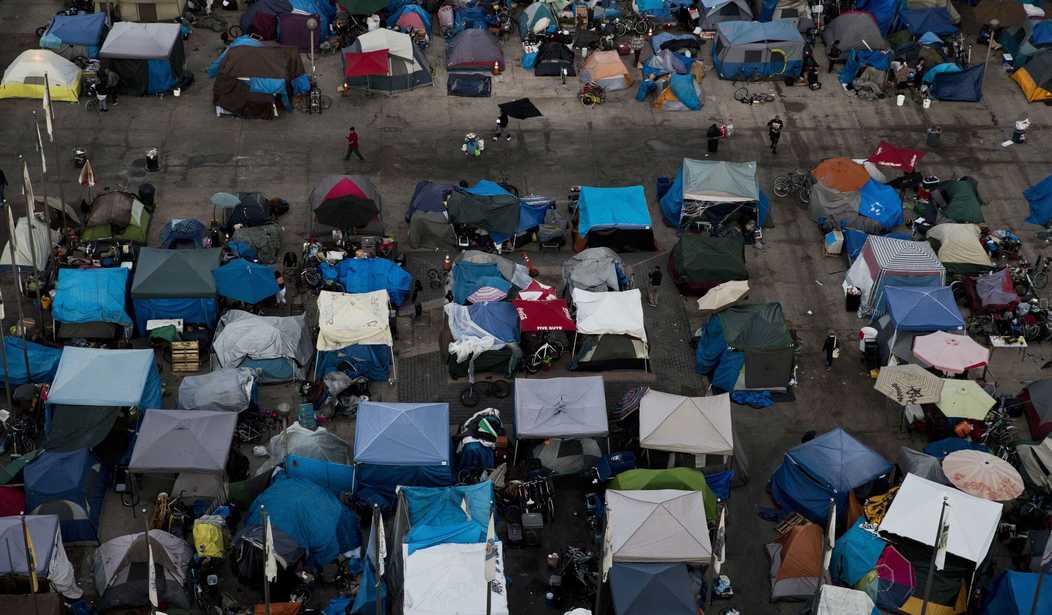Top News
Maine is clearing homeless encampments. Some want that to stop

Like most medium to large American cities these days, Portland, Maine has a significant homelessness problem. It’s not so much an issue of illegal migrants, though they have some of those also. Portland mostly just has its own native homeless population, ranging from people who are simply down on their luck to those with serious drug abuse or mental health issues. The city of roughly 70,000 people has a few shelters for the homeless, but they are typically full on a nightly basis. Many people wind up living in tents and makeshift shelters on public land. But the city has been regularly clearing those encampments several times per year. Now there are social justice advocates calling on the city to end this policy and allow people to “camp” where they wish. They’re eying policies that have been used in Massachusetts to deal with the homeless population. (Boston Globe)
The problem is one that vexes city officials. But for better and worse, sweeps are Portland’s policy. Now, a Portland social service group, Preble Street, is recommending what it says is a different solution. Under a seven-point plan, it says political leaders should go after federal and state housing vouchers and spend six months aggressively hunting for appropriate housing and shelter options. On top of that, outreach workers and programs should be dramatically increased to work with individuals with complex mental health and drug problems. The bottom line, outreach workers say, is the need for more resources and patience.
The encampments are similar to those at Boston’s Mass and Cass, where Mayor Michelle Wu has proposed an ordinance that bans tents.
The report from the Globe includes interviews with a number of homeless people in addition to city officials and activists, so it provides some interesting insights. When it comes to the existing shelters in Portland, there are few empty beds on any given night, so most of the people in the encampments don’t have another option. But that’s not true of all of them. Many simply don’t want to go to the shelters, claiming that they are dangerous. Others say that the rules in the shelters are “too restrictive,” generally meaning that they don’t allow the use of alcohol and illegal drugs.
Portland has a policy in place mandating the clearing of homeless encampments regularly because of the political realities that are involved. The city has a liberal, Democratic government, but they have been under intense pressure from residents and local businesses. They do not want the tent encampments in their neighborhoods. They drive away foot traffic and crime rates rise across the board wherever these gatherings appear.
Social workers who seek to help the homeless do what they can, but they freely admit that there are many living on the streets who simply don’t want any of the help that is offered aside from free shelter and food. You can’t help someone break their drug addiction when they are not looking to get clean. Similarly, you can’t help the mentally ill if they refuse treatment and it’s illegal to put them into involuntary treatment programs.
Portland city officials said that they are “open to other options,” but will stick with their policy of clearing the encampments until a better alternative is offered. And that’s the crux of the problem. There are no better alternatives on the table. What we’re seeing in Portland, Maine is a microcosm of the migrant crisis that is currently destroying New York and other large cities. The more welcoming the environment is, the more people will come. Portland is not officially a “sanctuary” city, despite having passed a local ordinance forbidding city officials from asking people about their immigration status or honoring ICE warrants. They don’t have a lot of resources for those without shelter, including housing. And with winter approaching, many of the homeless may wind up heading south, particularly since Portland doesn’t have a system of subway tunnels for them to move into. (Public transport in Portland is primarily provided by a system of metro buses and streetcars.)
In other words, Portland manages to present a progressive stance in public without being too welcoming or generous for those without the ability to support themselves, at least in great numbers. Perhaps other cities could take a page out of their book when dealing with the waves of illegal migrants currently sweeping the nation.
Read the full article here


















